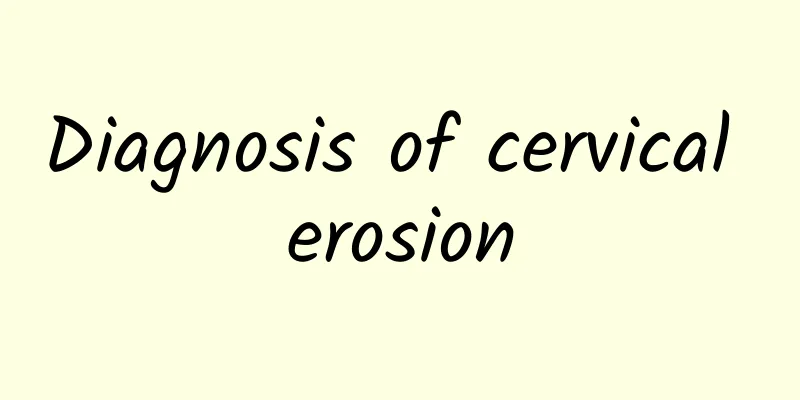What causes threatened miscarriage?

|
Threatened abortion is mainly caused by the combined effects of genetics, environmental factors, physiological factors, trauma and pathological reasons. It is necessary to identify the causes in time and take appropriate intervention measures. 1Genetic causes About 50%-60% of threatened miscarriages are related to chromosomal abnormalities in the embryo, which is one of the most common causes of miscarriage. If the embryo has chromosomal abnormalities during development and cannot continue to develop normally, it will cause miscarriage. It is recommended that couples who are planning to have a baby undergo genetic counseling and related examinations before planning a pregnancy, especially if there is a history of genetic diseases in the family. Genetic testing can screen for potential genetic factors, thereby effectively reducing risks. 2 Environmental factors Exposure to toxic and harmful environments during pregnancy, such as long-term exposure to chemical pollutants such as benzene, heavy metals, smoking, alcoholism or taking harmful drugs, can easily lead to poor fetal development and cause threatened miscarriage. Irregular lifestyle, excessive work pressure, overwork and long-term exposure to high temperature or radiation environments may also increase the risk of miscarriage. Improving the living environment, maintaining a good work and rest routine, and avoiding contact with high-risk substances are very important for women who are preparing to become pregnant or are already pregnant. 3 Physiological factors Poor maternal health, such as uterine dysplasia such as uterine septum, bicornuate uterus, corpus luteum insufficiency or immune problems, may result in the failure of the embryo to implant or develop smoothly, leading to miscarriage. It is recommended to conduct a comprehensive physical assessment before pregnancy, including gynecological examination and hormone level testing. Once the functional problem is confirmed, it can be improved through medication such as progesterone supplementation, hormone therapy or surgical treatment. 4 Traumatic factors Trauma or improper physical activity in early pregnancy may affect fetal development and cause miscarriage. For example, abdominal impact, heavy lifting, or strenuous exercise. If you must work or exercise during pregnancy, it is recommended to adjust the intensity, avoid strenuous movements, and pay attention to abdominal protection. 5 Pathological factors Some diseases, including endocrine disorders such as thyroid dysfunction, diabetes, serious infections such as rubella, toxoplasmosis, and hypertension, may affect the growth environment of the embryo and induce miscarriage. Regular prenatal check-ups should be performed during pregnancy. If any discomfort is found, medical treatment should be sought in a timely manner to reduce the risk of miscarriage through disease management. For example, thyroid function problems can be regulated by drugs, and infectious diseases need to be treated with antibiotics according to the type of bacteria. If you experience symptoms of threatened abortion such as abdominal pain or vaginal bleeding during pregnancy, you should seek medical attention immediately. Through ultrasound examination and blood hormone level monitoring, targeted treatment can be given after a clear diagnosis. Some mild threatened abortions can save the fetus after early rest and drug treatment. |
<<: What are the symptoms of uterine ovarian cysts
>>: Can you get pregnant with endometriosis?
Recommend
How long does it usually take to cure chronic vaginitis?
How long does it usually take to cure chronic vag...
What foods are good for uterine fibroids in a week? How long does it take for the medicine to take effect?
Uterine fibroids are a common gynecological disea...
How to relieve dysmenorrhea in women?
Dysmenorrhea is a common disease among women. Man...
What are the main pathogens of cervicitis?
We know that cervicitis can occur in hospitals du...
Experts explain the types of ovarian cysts
Women's ovaries are very important and are in...
How to treat cervical erosion best? The best treatment for cervical erosion in women
In the past, many women went for gynecological ex...
Experts introduce the treatment of chronic adnexitis
Adnexitis is divided into two types: acute and ch...
Refuse to be a fat bear Ginger metabolism UP
Do you always hit a plateau in your weight loss a...
What should I eat for amenorrhea?
The occurrence of amenorrhea may be considered a ...
What can't you eat after a miscarriage? Don't eat these 3 types of food
Abortion is equivalent to "postpartum confin...
What happens if the endometrium is too thick? Endometrial hyperplasia can turn into cancer
As one of the most important organs in the female...
What are the causes of habitual miscarriage?
Habitual miscarriage is a more serious form of mi...
What is pelvic inflammatory disease
Pelvic inflammatory disease refers to the female ...
What are the symptoms of cervicitis in women?
Did you know that cervicitis in women is very lik...
What is the main cause of uterine fibroids?
The frequent occurrence of uterine fibroids is ve...









